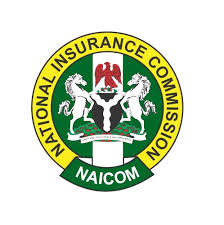Insurance wordings and insurance law specialisation have been described as two sides of a coin that should be present at the formation of the scope of insurance cover before it begins the insurance policy journey.
However, on the other side of the coin that should bear the lawyers emblem is barely seen or faint for any impression registration, thereby, making a should be joint effort of both sides taken up mostly by the underwriters.
The executive director, general business, Leadway Assurance Limited, Ms Adetola Adegbayi, said the local insurance terrain is spreading without an adequate presence of insurance law specialists to form a tag team with underwriters to construct insurance wordings.
Underlining the importance and need for insurance lawyers, Adegbayi said lawyers in practice should work together with insurance companies to look at wordings and also to understand the underwriting behind the wordings. The joint effort she explained, will spell out elaborately, what is being covered, not being covered, and what is being covered under what terms and conditions.
Adegbayi who is also a lawyer, spoke at a recent webinar hosted by First Law & Impact Consulting Limited in Lagos, where she called for collaboration between underwriters and lawyers and afterwards begin, what she wants to be an industry threshold, “perhaps more of insurance law specialisation within Nigeria.” Not done yet, she said more efforts are needed to attain the narration. “We have not spoken to that sufficiently enough. A lot of lawyers concentrate on the estate side, the bigger commercial side. We have lawyers but they are not really looking at the insurance contract side.”
Concerned Adegbayi said the near absence of lawyers is creating an empty space that needs bridging. “There is actually a big gap within the the insurance legal profession itself. When we start to get lawyers to look at wordings with underwriters, then we can begin to have something that speaks to the underwriting and as well as the consumers need to understand what is being covered and what is excluded.”
She explained that when this is done and there is a claim, “there isn’t a story.” Another area that leaves sour relations when claim arises is excess. “One major area where sometimes customers find difficult to understand is when there is a loss. Sometimes they don’t understand what an excess is. They expect once there is a loss, you have to pay. An excess contractually is meant to get you behave in a way that your moral hazard on the risk is low. Most people don’t understand that.”
Stepping up the welcome call to lawyers, she said another area that needs the attention of lawyers is indemnification. Taken the indemnification process further, she noted that produce insurance has been simplified to an extent whereby “you can write what is called index.” Adegbayi explains that index actually makes it a lot easier for an farmer to claim. But index requires a large group of people for it to make sense.
“So when you are writing index, you are basically saying that once an independent event, this is not about event disruption, has occurred regardless of whether or not you have suffered an individual loss, we will pay. Once you have that independent data contractually, a claim triggers and payment is made,” she stated.
However, when it comes to indemnification beyond the agriculture insurance sphere, she said the wordings have to be read to understand whether a loss event was covered, and whether an excluded event has come along. Indemnification also allows the insurer to verify whether the insured has behaved in a way that is not allowed and allows the insurer to resign from coverage.
She summed it up; balancing the contract structure with customers expectation “requires an element of the legal profession. I am putting this as my own slant to this discussion, we don’t even have enough of insurance lawyers and we need lawyers to get us to a point where the public is well educated on our business that seems esoteric to a lot but its actually money that we are selling, pure and simple.”









































